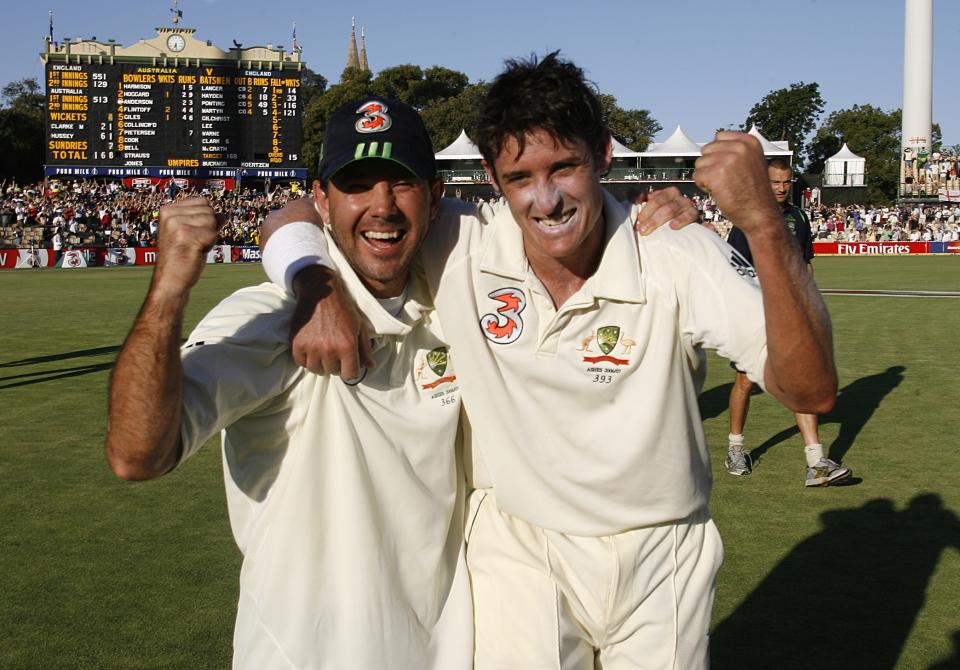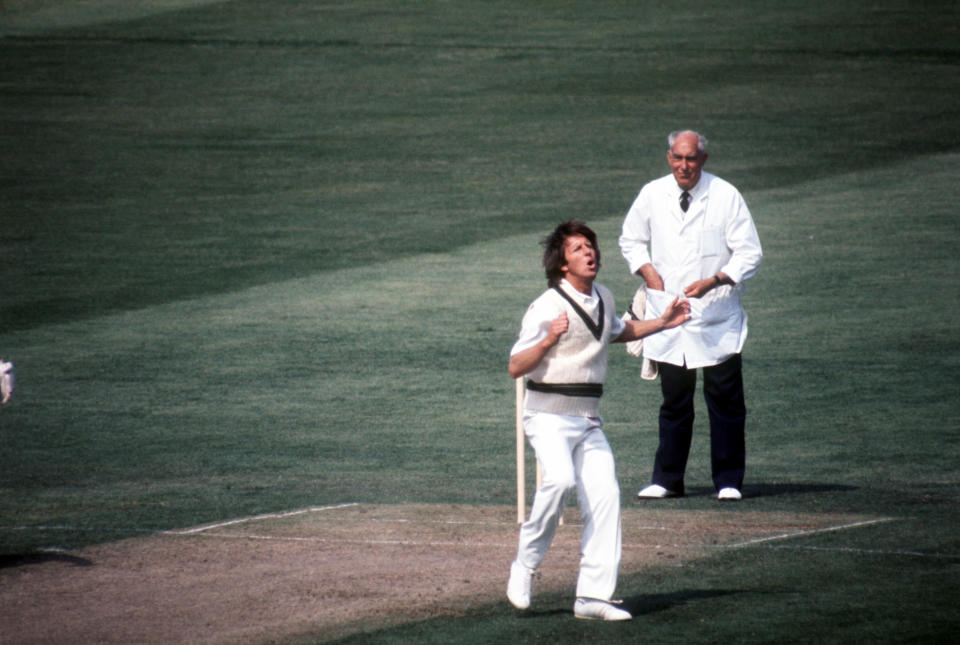Ashes: Four memorable encounters from the archives

This coming winter’s Ashes series has much to live up to when it comes to nail-biting, rollercoaster contests – England and Australia have surpassed themselves when it comes to some of Test Cricket’s most epic clashes.
The summer of 1968 saw an Australian team under Bill Lawry tour a miserably wet England. The five-match series was decimated by the inclement weather, and nearly saw to it that the Final Test at The Oval went the same, sodden away. However, in a climax which was to become part of Ashes folklore the series ended on the most dramatic of notes.
Unknown to the two sets of players the game would also prove to be a watershed (no pun intended) moment, not only in cricketing terms, but in political terms. Basil D’Oliveira came into the match needing a big knock to get him on the plane to South Africa – this he managed by hitting a superb 158. However, political manoeuvrings meant that D’Oliveira – from mixed Indian and Portuguese ancestry – was omitted from the touring party amid much controversy.
The drama came to a head when one of the selected touring party got injured, and D’Oliveira took his place. South African Prime Minister B.J.Vorster protested, saying the selection was politically motivated and the tour was eventually cancelled. This was to prove the beginning of the South African’s journey into the wilderness for over twenty years.
READ MORE: The BEST Ashes XI of all time
READ MORE: The GREATEST Ashes icons of all time
READ MORE: The WORST Ashes XI of all time
Back to the action on the pitch, and the dramatic turn of events on the final day of that series. Australia went into the final day 13-2, needing another 300-odd to win – extremely unlikely given the high-stakes and the slow-scoring. The Australians then slid to 86-5 at lunch and England were a happy as Larry as they went in at the break. And then it happened – the most colossal thunderstorm which quickly transformed the Oval into a lake.

The England captain, Colin Cowdrey then turned to spectators to help mop up the outfield, and after a massive effort (I’m not sure there would’ve been so many volunteers if Australia were pushing for a win) the game could resume at 4.45pm. For half an hour no wickets fell, and it looked as though it’d peter out quietly to a draw. Sensing the need to change things up, Cowdrey tossed the influential D’Oliveira, who duly made the breakthrough with just 40 minutes left to play. Underwood bowling like a demon on an uncovered wicket who proceeded to hoover up the rest of the wickets, ending up with figures of 7-50 and England ran out winners by 226 runs.
Pure drama
The Boxing Day game in the 1982-83 series saw one of the most dramatic finishes seen in an Ashes Tests. Looking at the scores – England 284 and 294, Australia 287 and 288 shows you how close the contest was in figures, but what it doesn’t tell you is how the drama unfolded. When Jeff Thomson strode to the wicket at Number 11, Australia still needed 74 and England were nailed on to win. Partnered by an out of form Allan Border, they’d halved their target by stumps going into the fifth day.
READ MORE: Voices of Sport – the best Ashes commentary moments ever
A crowd of 18,000 turned up for the final day to see what could’ve been one ball. However, Border and Thomson chipped away at the target and just when it appeared England had managed to snatch defeat from the jaws of victory, Ian Botham was handed the ball. Could he weave his magic? That he did – just, Thomson nicking the ball and Geoff Miller catching the rebound via Tavare’s fumble, leaving the Australians tantalisingly 3 runs short of victory.
So to the 2006/7 tour of Australia. When England declared on 551-6 in the Second Test at Adelaide, England fans must’ve been cock-a-hoop, especially when their team managed to take the valuable wicket of Justin Langer before the close.
The following day saw England make more inroads, but just when the chance came to really turn the screw, England fluffed their lines – well, Ashley Giles dropped Ricky Ponting – and Australia went on to post a big score, thanks to 142 from the aforementioned Australian skipper.
It’s here where England came unravelled and completely lost the plot. Not knowing whether to stick or twist in the second innings, England became totally becalmed. Australia smelled the blood and moved in for the kill as England simply surrendered the initiative as they were skittled (slowly) for 129. Australia reached their target of 168 with only four wickets down, at a canter and the home team celebrated a miracle win which broke England’s back and sowed the seeds for a whitewash.
A star is born
England (remarkably in retrospect) went into the 1974-5 series against the Old Enemy with a sense of optimism. Dennis Lillee had just returned from a lengthy back injury, and it was considered he’d be half the bowler they’d faced in England in 1972. The Australians had picked a fella who’d played one Test against Pakistan a few years previously – not only had he played one Test but he’d not done that well – 0-110 to be exact.
Ten days before the Brisbane Test was due to begin, the groundsman had been sacked and the Lord Mayor, Alderman Clem Jones appointed himself the new curator. Nice work if you can get it (give it to yourself). Following heavy storms two days prior to the Test, the self-appointed groundsman got to work, and both teams looked on nervously as the amateur horticulturist got to work on his new train set.

Australia batted first and managed to put together a half-decent score of 309, with skipper Ian Chappell scoring 90. As England’s batsman walked out to middle that day at the Gabba they couldn’t have envisaged that hell was about to be unleashed on them – chiefly by that bloke who’d played one previous Test – Jeff Thomson.
Immediately the ball began to leap and spit off the “sporting” wicket at a fierce pace. Lillee was no medium pacer, but Thomson was searing – hitting Rodney Marsh’s gloves with a colossal “thud!” Between the England batsman’s broken hands, thumbs and ribs, Tony Greig came in and played a flashy, daring and charismatic knock of 110 – signalling his own fours to get the opposition riled, much to his team-mates despair.
England lost the game by 166 runs – Thomson taking 6-46 in the second innings. Apart from the broken limbs and bruising, the most important blow to the tourists was the psychological damage imposed by Lillee and Thomson. However, it was Thomson’s fiercely quick and hair-raising spells for which this match and indeed series will always be remembered for.

 Yahoo Sport
Yahoo Sport 





































